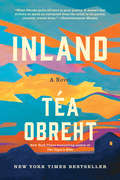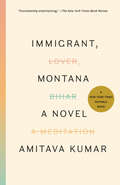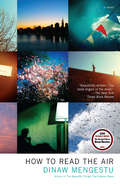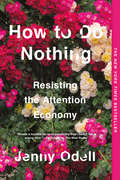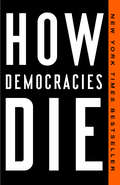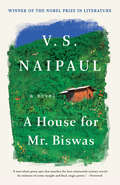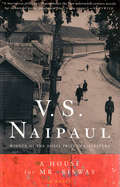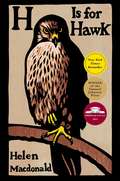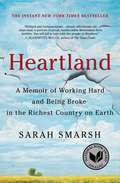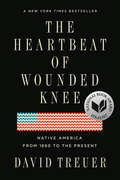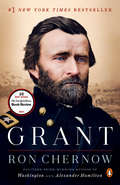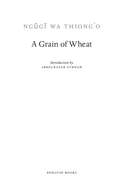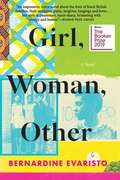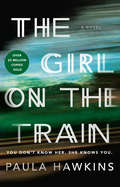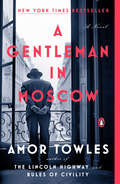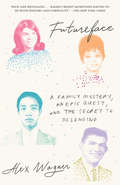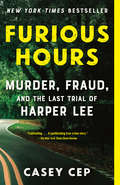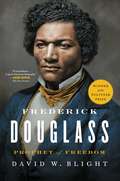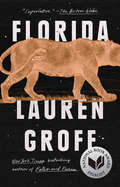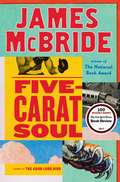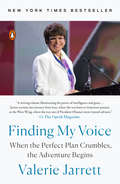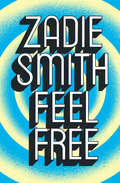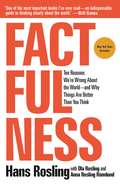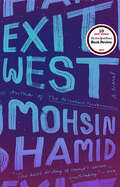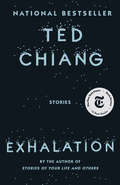Special Collections
Obama's Recommended Reads
- Table View
- List View
Inland
by Téa ObrehtThe New York Times bestselling author of The Tiger’s Wife returns with “a bracingly epic and imaginatively mythic journey across the American West” (Entertainment Weekly).
In the lawless, drought-ridden lands of the Arizona Territory in 1893, two extraordinary lives unfold.
Nora is an unflinching frontierswoman awaiting the return of the men in her life—her husband, who has gone in search of water for the parched household, and her elder sons, who have vanished after an explosive argument. Nora is biding her time with her youngest son, who is convinced that a mysterious beast is stalking the land around their home.
Meanwhile, Lurie is a former outlaw and a man haunted by ghosts. He sees lost souls who want something from him, and he finds reprieve from their longing in an unexpected relationship that inspires a momentous expedition across the West.
The way in which Lurie’s death-defying trek at last intersects with Nora’s plight is the surprise and suspense of this brilliant novel. Mythical, lyrical, and sweeping in scope, Inland is grounded in true but little-known history.
It showcases all of Téa Obreht’s talents as a writer, as she subverts and reimagines the myths of the American West, making them entirely—and unforgettably—her own.
A New York Times Bestseller
Immigrant, Montana
by Amitava KumarA singularly smart, engaging, and moving novel about a young immigrant in search of himself, and love, in the wider world.
Carrying a single suitcase, Kailash arrives in post-Reagan America from India to attend graduate school. His new friends in New York City teasingly call him Kalashnikov, then AK-47, then AK. He takes it all in his stride: he wants to fit in--and more than that, to shine. As he begins to settle into American existence, AK comes under the indelible influence of a charismatic professor--also an immigrant, his personal history as dramatic as AK's life--and his perception of himself--are the very different natures of the women with whom he recklessly falls in and out of love.
Looking back on the formative period of his youth, AK is studiously observant and meditative and, in the moment, the boisterous embodiment of idealism, confusion, and chaotic desire. His wry, vivid perception of the world he is in, but never quite of, unfurls in a brilliant melding of anecdote and annotation, picture and text, that digs deep inside the varieties and vagaries of the immigrant experience.
Building a case for himself, both as a good man in spite of his flaws and as an American in defiance of his place of birth, AK weaves a story that is at its core an incandescent investigation of love--despite, beyond, and across dividing lines.
How to Read the Air
by Dinaw MengestuDinaw Mengestu's first novel, Children of the Revolution, earned him comparisons to Bellow, Fitzgerald and Naipaul, garnered ecstatic critical praise and won the Guardian First Book Award for its haunting depiction of the immigrant experience in America. Now, he enriches the themes that defined his debut in a story that captures two generations of an immigrant family. One early September afternoon, Yosef and Mariam, young Ethiopians who have spent all but their first year of marriage apart, set off on a road trip from their new home in Peoria, Illinois, to Nashville, Tennessee, in search of an identity as an American couple. Thirty years later, Yosef has died, and the couple's son, Jonas, is desperate to make sense of the volatile generational and cultural ties that have forged him. How can he envision his future without knowing what has come before? Leaving behind his marriage and job in New York, Jonas sets out to retrace his parents' trip and, in a stunning display of imagination, weaves together a family history that takes him from the war-torn Ethiopia of his parents' youth to a brighter vision of his own life in contemporary America, a story real or invented that holds the possibility of reconciliation and redemption. A heartbreaking masterwork about love, family and the power of imagination, How to Read the Air confirms Dinaw Mengestu's reputation as one of the brightest talents of his generation.
How to Do Nothing
by Jenny OdellA galvanizing critique of the forces vying for our attention—and our personal information—that redefines what we think of as productivity, reconnects us with the environment, and reveals all that we’ve been too distracted to see about ourselves and our world
Nothing is harder to do these days than nothing. But in a world where our value is determined by our 24/7 data productivity . . . doing nothing may be our most important form of resistance. So argues artist and critic Jenny Odell in this field guide to doing nothing (at least as capitalism defines it).
Odell sees our attention as the most precious—and overdrawn—resource we have. Once we can start paying a new kind of attention, she writes, we can undertake bolder forms of political action, reimagine humankind’s role in the environment, and arrive at more meaningful understandings of happiness and progress.
Far from the simple anti-technology screed, or the back-to-nature meditation we read so often, How to do Nothing is an action plan for thinking outside of capitalist narratives of efficiency and techno-determinism. Provocative, timely, and utterly persuasive, this book is a four-course meal in the age of Soylent.
A New York Times Bestseller
How Democracies Die
by Daniel Ziblatt and Steven LevitskyA bracing, revelatory look at the demise of liberal democracies around the world—and a road map for rescuing our own Donald Trump’s presidency has raised a question that many of us never thought we’d be asking: Is our democracy in danger?
Harvard professors Steven Levitsky and Daniel Ziblatt have spent more than twenty years studying the breakdown of democracies in Europe and Latin America, and they believe the answer is yes. Democracy no longer ends with a bang—in a revolution or military coup—but with a whimper: the slow, steady weakening of critical institutions, such as the judiciary and the press, and the gradual erosion of long-standing political norms.
The good news is that there are several exit ramps on the road to authoritarianism. The bad news is that, by electing Trump, we have already passed the first one. Drawing on decades of research and a wide range of historical and global examples, from 1930s Europe to contemporary Hungary, Turkey, and Venezuela, to the American South during Jim Crow, Levitsky and Ziblatt show how democracies die—and how ours can be saved.
A New York Times Bestseller
A House for Mr. Biswas
by V. S. NaipaulThe early masterpiece of V. S. Naipaul's brilliant career, A House for Mr. Biswas is an unforgettable story inspired by Naipaul's father that has been hailed as one of the twentieth century's finest novels.In his forty-six short years, Mr. Mohun Biswas has been fighting against destiny to achieve some semblance of independence, only to face a lifetime of calamity. Shuttled from one residence to another after the drowning death of his father, for which he is inadvertently responsible, Mr. Biswas yearns for a place he can call home. But when he marries into the domineering Tulsi family on whom he indignantly becomes dependent, Mr. Biswas embarks on an arduous-and endless-struggle to weaken their hold over him and purchase a house of his own. A heartrending, dark comedy of manners, A House for Mr. Biswas masterfully evokes a man's quest for autonomy against an emblematic post-colonial canvas.From the Trade Paperback edition.
A House for Mr. Biswas
by V. S. NaipaulThe early masterpiece of V. S. Naipaul's brilliant career, A House for Mr. Biswas is an unforgettable story inspired by Naipaul's father that has been hailed as one of the twentieth century's finest novels. In his forty-six short years, Mr. Mohun Biswas has been fighting against destiny to achieve some semblance of independence, only to face a lifetime of calamity. Shuttled from one residence to another after the drowning death of his father, for which he is inadvertently responsible, Mr. Biswas yearns for a place he can call home. But when he marries into the domineering Tulsi family on whom he indignantly becomes dependent, Mr. Biswas embarks on an arduous--and endless--struggle to weaken their hold over him and purchase a house of his own. A heartrending, dark comedy of manners, A House for Mr. Biswas masterfully evokes a man's quest for autonomy against an emblematic post-colonial canvas.
H is for Hawk
by Helen MacdonaldWhen Helen Macdonald's father died suddenly on a London street, she was devastated. An experienced falconer—Helen had been captivated by hawks since childhood—she'd never before been tempted to train one of the most vicious predators, the goshawk. But in her grief, she saw that the goshawk's fierce and feral temperament mirrored her own. Resolving to purchase and raise the deadly creature as a means to cope with her loss, she adopted Mabel, and turned to the guidance of The Once and Future King author T.H. White's chronicle The Goshawk to begin her challenging endeavor. Projecting herself "in the hawk's wild mind to tame her" tested the limits of Macdonald's humanity and changed her life.
Heart-wrenching and humorous, this book is an unflinching account of bereavement and a unique look at the magnetism of an extraordinary beast, with a parallel examination of a legendary writer's eccentric falconry. Obsession, madness, memory, myth, and history combine to achieve a distinctive blend of nature writing and memoir from an outstanding literary innovator.
Heartland
by Sarah Smarsh*Finalist for the National Book Award* *Finalist for the Kirkus Prize* *Instant New York Times Bestseller* *Named a Best Book of the Year by NPR, New York Post, BuzzFeed, Shelf Awareness, Bustle, and Publishers Weekly* An essential read for our times: an eye-opening memoir of working-class poverty in America that will deepen our understanding of the ways in which class shapes our country and &“a deeply humane memoir that crackles with clarifying insight&”.*Sarah Smarsh was born a fifth generation Kansas wheat farmer on her paternal side, and the product of generations of teen mothers on her maternal side. Through her experiences growing up on a farm thirty miles west of Wichita, we are given a unique and essential look into the lives of poor and working class Americans living in the heartland. During Sarah&’s turbulent childhood in Kansas in the 1980s and 1990s, she enjoyed the freedom of a country childhood, but observed the painful challenges of the poverty around her; untreated medical conditions for lack of insurance or consistent care, unsafe job conditions, abusive relationships, and limited resources and information that would provide for the upward mobility that is the American Dream. By telling the story of her life and the lives of the people she loves with clarity and precision but without judgement, Smarsh challenges us to look more closely at the class divide in our country. Beautifully written, in a distinctive voice, Heartland combines personal narrative with powerful analysis and cultural commentary, challenging the myths about people thought to be less because they earn less. &“Heartland is one of a growing number of important works—including Matthew Desmond&’s Evicted and Amy Goldstein&’s Janesville—that together merit their own section in nonfiction aisles across the country: America&’s postindustrial decline...Smarsh shows how the false promise of the &‘American dream&’ was used to subjugate the poor. It&’s a powerful mantra&” *(The New York Times Book Review).
The Heartbeat of Wounded Knee
by David TreuerA sweeping history--and counter-narrative--of Native American life from the Wounded Knee massacre to the present.
The received idea of Native American history--as promulgated by books like Dee Brown's mega-bestselling 1970 Bury My Heart at Wounded Knee--has been that American Indian history essentially ended with the 1890 massacre at Wounded Knee.
Not only did one hundred fifty Sioux die at the hands of the U. S. Cavalry, the sense was, but Native civilization did as well. Growing up Ojibwe on a reservation in Minnesota, training as an anthropologist, and researching Native life past and present for his nonfiction and novels, David Treuer has uncovered a different narrative.
Because they did not disappear--and not despite but rather because of their intense struggles to preserve their language, their traditions, their families, and their very existence--the story of American Indians since the end of the nineteenth century to the present is one of unprecedented resourcefulness and reinvention.
In The Heartbeat of Wounded Knee, Treuer melds history with reportage and memoir. Tracing the tribes' distinctive cultures from first contact, he explores how the depredations of each era spawned new modes of survival.
The devastating seizures of land gave rise to increasingly sophisticated legal and political maneuvering that put the lie to the myth that Indians don't know or care about property. The forced assimilation of their children at government-run boarding schools incubated a unifying Native identity.
Conscription in the US military and the pull of urban life brought Indians into the mainstream and modern times, even as it steered the emerging shape of self-rule and spawned a new generation of resistance. The Heartbeat of Wounded Knee is the essential, intimate story of a resilient people in a transformative era.
A New York Times Bestseller
Grant
by Ron ChernowPulitzer Prize winner Ron Chernow returns with a sweeping and dramatic portrait of one of our most compelling generals and presidents, Ulysses S. Grant.
Ulysses S. Grant's life has typically been misunderstood. All too often he is caricatured as a chronic loser and an inept businessman, or as the triumphant but brutal Union general of the Civil War. But these stereotypes don't come close to capturing him, as Chernow shows in his masterful biography, the first to provide a complete understanding of the general and president whose fortunes rose and fell with dizzying speed and frequency. Before the Civil War, Grant was flailing.
His business ventures had ended dismally, and despite distinguished service in the Mexican War he ended up resigning from the army in disgrace amid recurring accusations of drunkenness. But in war, Grant began to realize his remarkable potential, soaring through the ranks of the Union army, prevailing at the battle of Shiloh and in the Vicksburg campaign, and ultimately defeating the legendary Confederate general Robert E. Lee. Along the way, Grant endeared himself to President Lincoln and became his most trusted general and the strategic genius of the war effort. Grant’s military fame translated into a two-term presidency, but one plagued by corruption scandals involving his closest staff members.
More important, he sought freedom and justice for black Americans, working to crush the Ku Klux Klan and earning the admiration of Frederick Douglass, who called him “the vigilant, firm, impartial, and wise protector of my race.” After his presidency, he was again brought low by a dashing young swindler on Wall Street, only to resuscitate his image by working with Mark Twain to publish his memoirs, which are recognized as a masterpiece of the genre.
With lucidity, breadth, and meticulousness, Chernow finds the threads that bind these disparate stories together, shedding new light on the man whom Walt Whitman described as “nothing heroic... and yet the greatest hero.” Chernow’s probing portrait of Grant's lifelong struggle with alcoholism transforms our understanding of the man at the deepest level. This is America's greatest biographer, bringing movingly to life one of our finest but most underappreciated presidents. The definitive biography, Grant is a grand synthesis of painstaking research and literary brilliance that makes sense of all sides of Grant's life, explaining how this simple Midwesterner could at once be so ordinary and so extraordinary.
A New York Times Bestseller
A Grain of Wheat
by Ngugi Wa Thiong'O and Abdulrazak GurnahThe best-known novel by the great Kenyan writer Set in the wake of the Mau Mau rebellion and on the cusp of Kenya's independence from Britain, A Grain of Wheat follows a group of villagers whose lives have been transformed by the 1952-1960 Emergency. At the center of it all is the reticent Mugo, the village's chosen hero and a man haunted by a terrible secret. As we learn of the villagers' tangled histories in a narrative interwoven with myth and peppered with allusions to real-life leaders, including Jomo Kenyatta, a masterly story unfolds in which compromises are forced, friendships are betrayed, and loves are tested.
Girl, Woman, Other
by Bernardine EvaristoBernardine Evaristo is the winner of the 2019 Booker Prize and the first black woman to receive this highest literary honor in the English language.Girl, Woman, Other is a magnificent portrayal of the intersections of identity and a moving and hopeful story of an interconnected group of Black British women that paints a vivid portrait of the state of contemporary Britain and looks back to the legacy of Britain's colonial history in Africa and the Caribbean.
The twelve central characters of this multi-voiced novel lead vastly different lives: Amma is a newly acclaimed playwright whose work often explores her Black lesbian identity; her old friend Shirley is a teacher, jaded after decades of work in London's funding-deprived schools; Carole, one of Shirley's former students, is a successful investment banker; Carole's mother Bummi works as a cleaner and worries about her daughter's lack of rootedness despite her obvious achievements. From a nonbinary social media influencer to a 93-year-old woman living on a farm in Northern England, these unforgettable characters also intersect in shared aspects of their identities, from age to race to sexuality to class.
Sparklingly witty and filled with emotion, centering voices we often see othered, and written in an innovative fast-moving form that borrows technique from poetry,Girl, Woman, Other is a polyphonic and richly textured social novel that shows a side of Britain we rarely see, one that reminds us of all that connects us to our neighbors, even in times when we are encouraged to be split apart.
The Girl on the Train
by Paula HawkinsThree women, three men, connected through marriage or infidelity. Each is to blame for something. But only one is a killer in this nail-biting, stealthy psychological thriller about human frailty and obsession. Just what goes on in the houses you pass by every day? Rachel takes the same commuter train every morning and evening, rattling over the same junctions, flashing past the same townhouses.The train stops at the same signal every day, and she sees the same couple, breakfasting on their roof terrace. Jason and Jess, as she calls them, seem so happy. Then one day Rachel sees someone new in their garden. Soon after, Rachel sees the woman she calls Jess on the news. Jess has disappeared. Through the ensuing police investigation, Rachel is drawn deeper into the lives of the couple she learns are really Megan and Scott Hipwell. As she befriends Scott, Rachel pieces together what really happened the day Megan disappeared. But when Megan's body is found, Rachel finds herself the chief suspect in the case. Plunged into a world of betrayals, secrets and deceptions, Rachel must confront the facts about her own past and her own failed marriage. A sinister and twisting story that will keep you guessing at every turn, The Girl on the Train is a high-speed chase for the truth.From the Trade Paperback edition.
A Gentleman in Moscow
by Amor TowlesHe can't leave his hotel. You won't want to. From the New York Times bestselling author of Rules of Civility--a transporting novel about a man who is ordered to spend the rest of his life inside a luxury hotel.
In 1922, Count Alexander Rostov is deemed an unrepentant aristocrat by a Bolshevik tribunal, and is sentenced to house arrest in the Metropol, a grand hotel across the street from the Kremlin.
Rostov, an indomitable man of erudition and wit, has never worked a day in his life, and must now live in an attic room while some of the most tumultuous decades in Russian history are unfolding outside the hotel's doors.
Unexpectedly, his reduced circumstances provide him entry into a much larger world of emotional discovery. Brimming with humor, a glittering cast of characters, and one beautifully rendered scene after another, this singular novel casts a spell as it relates the count's endeavor to gain a deeper understanding of what it means to be a man of purpose.
A New York Times Bestseller
Futureface
by Alex WagnerAn acclaimed journalist travels the globe to solve the mystery of her ancestry, confronting the question at the heart of the American experience of immigration, race, and identity: Who are my people?
Alex Wagner has always been fascinated by stories of exile and migration. Her father’s ancestors immigrated to the United States from Ireland and Luxembourg. Her mother fled Rangoon in the 1960s, escaping Burma’s military dictatorship.
In her professional life, Wagner reported from the Arizona-Mexico border, where agents, drones, cameras, and military hardware guarded the line between two nations. She listened to debates about whether the United States should be a melting pot or a salad bowl.
She knew that moving from one land to another—and the accompanying recombination of individual and tribal identities—was the story of America. And she was happy that her own mixed-race ancestry and late twentieth-century education had taught her that identity is mutable and meaningless, a thing we make rather than a thing we are.
When a cousin’s offhand comment threw a mystery into her personal story–introducing the possibility of an exciting new twist in her already complex family history—Wagner was suddenly awakened to her own deep hunger to be something, to belong, to have an identity that mattered, a tribe of her own.
Intoxicated by the possibility, she became determined to investigate her genealogy. So she set off on a quest to find the truth about her family history.
The journey takes Wagner from Burma to Luxembourg, from ruined colonial capitals with records written on banana leaves to Mormon databases and high-tech genetic labs.
As she gets closer to solving the mystery of her own ancestry, she begins to grapple with a deeper question: Does it matter? Is our enduring obsession with blood and land, race and identity, worth all the trouble it’s caused us?
The answers can be found in this deeply personal account of her search for belonging, a meditation on the things that define us as insiders and outsiders and make us think in terms of “us” and “them.”
In this time of conflict over who we are as a country, when so much emphasis is placed on ethnic, religious, and national divisions, Futureface constructs a narrative where we all belong.
Furious Hours
by Casey CepAs seen on CBS Sunday Morning In Furious Hours, Casey Cep unravels the mystery surrounding Harper Lee's first and only work of nonfiction, and the shocking true crimes at the center of it. Reverend Willie Maxwell was a rural preacher accused of murdering five of his family members for insurance money in the 1970s. With the help of a savvy lawyer, he escaped justice for years until a relative shot him dead at the funeral of his last victim. Despite hundreds of witnesses, Maxwell's murderer was acquitted--thanks to the same attorney who had previously defended the Reverend. Sitting in the audience during the vigilante's trial was Harper Lee, who had traveled from New York City to her native Alabama with the idea of writing her own In Cold Blood, the true-crime classic she had helped her friend Truman Capote research seventeen years earlier. Lee spent a year in town reporting, and many more years working on her own version of the case. Now Casey Cep brings this story to life, from the shocking murders to the courtroom drama to the racial politics of the Deep South. At the same time, she offers a deeply moving portrait of one of the country's most beloved writers and her struggle with fame, success, and the mystery of artistic creativity. A New York Times Bestseller.
Frederick Douglass
by David W. Blight**Winner of the Pulitzer Prize in History** &“Extraordinary…a great American biography&” (The New Yorker) of the most important African-American of the nineteenth century: Frederick Douglass, the escaped slave who became the greatest orator of his day and one of the leading abolitionists and writers of the era.As a young man Frederick Douglass (1818–1895) escaped from slavery in Baltimore, Maryland. He was fortunate to have been taught to read by his slave owner mistress, and he would go on to become one of the major literary figures of his time. His very existence gave the lie to slave owners: with dignity and great intelligence he bore witness to the brutality of slavery. Initially mentored by William Lloyd Garrison, Douglass spoke widely, using his own story to condemn slavery. By the Civil War, Douglass had become the most famed and widely travelled orator in the nation. In his unique and eloquent voice, written and spoken, Douglass was a fierce critic of the United States as well as a radical patriot. After the war he sometimes argued politically with younger African Americans, but he never forsook either the Republican party or the cause of black civil and political rights. In this &“cinematic and deeply engaging&” (The New York Times Book Review) biography, David Blight has drawn on new information held in a private collection that few other historian have consulted, as well as recently discovered issues of Douglass&’s newspapers. &“Absorbing and even moving…a brilliant book that speaks to our own time as well as Douglass&’s&” (The Wall Street Journal), Blight&’s biography tells the fascinating story of Douglass&’s two marriages and his complex extended family. &“David Blight has written the definitive biography of Frederick Douglass…a powerful portrait of one of the most important American voices of the nineteenth century&” (The Boston Globe). In addition to the Pulitzer Prize, Frederick Douglass won the Bancroft, Parkman, Los Angeles Times (biography), Lincoln, Plutarch, and Christopher awards and was named one of the Best Books of 2018 by The New York Times Book Review, The Wall Street Journal, The Boston Globe, The Chicago Tribune, The San Francisco Chronicle, and Time.
Florida
by Lauren GroffNew York Times bestseller Lauren Groff returns with an electric collection of stories as propulsive and consuming as her novel Fates and Furies.
Lauren Groff is one of the most important authors writing today, and Florida -- her first new book since her "clear the ground triumph"* Fates and Furies -- is an electrifying, expanding read.
Over a decade ago, Groff moved to her adopted home state of Florida. The stories in this collection span characters, towns, decades, even centuries, but Florida -- its landscape, climate, history, and state of mind -- becomes its gravitational center. Storms, snakes, and sinkholes lurk at the edge of everyday life, but the greater threats and mysteries are of a human, emotional, and psychological nature.
In "The Midnight Zone," a woman finds herself injured and isolated in a confined space with her children, danger literally prowling outside the door, and must confront what it is she is really afraid of.
"Above and Below" follows a young homeless woman as she moves from one Florida beach town to another, finding increasingly precarious ways to survive.
And "Yport" brilliantly explores the alternating fulfillment and anxiety of modern marriage and motherhood, all the more apparent when removed from routine American life.
Groff's evocative storytelling and knife-sharp intelligence first transport the reader, then jolt us alert with a crackle of wit, a wave of sadness, a flash of cruelty, as she writes about loneliness, rage, family, and the passage of time.
With shocking accuracy and effect, Groff pinpoints the moments and decisions and connections behind human pleasure and pain, hope and despair, love and fury -- the moments that make us alive. Vigorous, startling, precise, and moving, Florida is a magnificent achievement.(*Washington Post)
Five-Carat Soul
by James Mcbride“A vivid, often funny story collection that examines serious topics like race, war, history, and self-identity—all with a deft hand and a fluid, musical voice.” —Entertainment WeeklyExciting new fiction from James McBride, the first since his National Book Award–winning novel The Good Lord Bird. The stories in Five-Carat Soul—none of them ever published before—spring from the place where identity, humanity, and history converge. They’re funny and poignant, insightful and unpredictable, imaginative and authentic—all told with McBride’s unrivaled storytelling skill and meticulous eye for character and detail. McBride explores the ways we learn from the world and the people around us. An antiques dealer discovers that a legendary toy commissioned by Civil War General Robert E. Lee now sits in the home of a black minister in Queens. Five strangers find themselves thrown together and face unexpected judgment. An American president draws inspiration from a conversation he overhears in a stable. And members of The Five-Carat Soul Bottom Bone Band recount stories from their own messy and hilarious lives. As McBride did in his National Book award-winning The Good Lord Bird and his bestselling The Color of Water, he writes with humor and insight about how we struggle to understand who we are in a world we don’t fully comprehend. The result is a surprising, perceptive, and evocative collection of stories that is also a moving exploration of our human condition.
Finding My Voice
by Valerie Jarrett"The ultimate Obama insider" (The New York Times) and longest-serving senior advisor in the Obama White House shares her journey as a daughter, mother, lawyer, business leader, public servant, and leader in government at a historic moment in American history.
When Valerie Jarrett interviewed a promising young lawyer named Michelle Robinson in July 1991 for a job in Chicago city government, neither knew that it was the first step on a path that would end in the White House. Jarrett soon became Michelle and Barack Obama's trusted personal adviser and family confidante; in the White House, she was known as the one who "got" him and helped him engage his public life.
Jarrett joined the White House team on January 20, 2009 and departed with the First Family on January 20, 2017, and she was in the room--in the Oval Office, on Air Force One, and everywhere else--when it all happened. No one has as intimate a view of the Obama Years, nor one that reaches back as many decades, as Jarrett shares in Finding My Voice.
Born in Iran (where her father, a doctor, sought a better job than he could find in segregated America), Jarrett grew up in Chicago in the 60s as racial and gender barriers were being challenged.
A single mother stagnating in corporate law, she found her voice in Harold Washington's historic administration, where she began a remarkable journey, ultimately becoming one of the most visible and influential African-American women of the twenty-first century.
From her work ensuring equality for women and girls, advancing civil rights, reforming our criminal justice system, and improving the lives of working families, to the real stories behind some of the most stirring moments of the Obama presidency, Jarrett shares her forthright, optimistic perspective on the importance of leadership and the responsibilities of citizenship in the twenty-first century, inspiring readers to lift their own voices.
A New York Times Bestseller
Feel Free
by Zadie SmithA timely, powerful collection of essays from one of our sharpest minds and most sparkling stylists.
How much joy can a person tolerate? How many kinds of boredom make up a life? Who owns the story of black America? Should Justin Bieber be more like Socrates? And why is there a dead art collector floating in the swimming pool?
Dazzlingly insightful, explosively funny and ever-timely, Zadie Smith is back with a second unmissable collection of essays. From German Old Masters to the new masters of East Coast rap, from social networks opening lines of communication to national referenda closing doors, Feel Free reaches out in all directions and draws back a rich feast of ideas. Here pop culture, high culture, social change and political debate all get the Zadie Smith treatment: dissected with razor-sharp intellect, set brilliantly against the context of the utterly contemporary, and considered with a deep humanity and compassion.
With the easy intimacy of a local and the piercing clarity of an outsider, Feel Free casts a sharp critical eye over the creative luminaries that have shaped our world: from J. G. Ballard to Karl Ove Knausgaard, Orson Welles to Charlie Kaufman, Joni Mitchell to Beyonce, and far beyond. And it considers the points of contact where the author herself meets this world, where the political meets the personal and critique meets memoir. This electrifying new collection showcases Zadie Smith as a true literary powerhouse, demonstrating once again her credentials as an essential voice of her generation.
Factfulness
by Hans Rosling and Anna Rosling Rönnlund and Ola RoslingINSTANT NEW YORK TIMES BESTSELLER“One of the most important books I’ve ever read—an indispensable guide to thinking clearly about the world.” – Bill Gates“Hans Rosling tells the story of ‘the secret silent miracle of human progress’ as only he can. But Factfulness does much more than that. It also explains why progress is so often secret and silent and teaches readers how to see it clearly.” —Melinda GatesFactfulness: The stress-reducing habit of only carrying opinions for which you have strong supporting facts. When asked simple questions about global trends—what percentage of the world’s population live in poverty; why the world’s population is increasing; how many girls finish school—we systematically get the answers wrong. So wrong that a chimpanzee choosing answers at random will consistently outguess teachers, journalists, Nobel laureates, and investment bankers.In Factfulness, Professor of International Health and global TED phenomenon Hans Rosling, together with his two long-time collaborators, Anna and Ola, offers a radical new explanation of why this happens. They reveal the ten instincts that distort our perspective—from our tendency to divide the world into two camps (usually some version of us and them) to the way we consume media (where fear rules) to how we perceive progress (believing that most things are getting worse). Our problem is that we don’t know what we don’t know, and even our guesses are informed by unconscious and predictable biases.It turns out that the world, for all its imperfections, is in a much better state than we might think. That doesn’t mean there aren’t real concerns. But when we worry about everything all the time instead of embracing a worldview based on facts, we can lose our ability to focus on the things that threaten us most. Inspiring and revelatory, filled with lively anecdotes and moving stories, Factfulness is an urgent and essential book that will change the way you see the world and empower you to respond to the crises and opportunities of the future. ---“This book is my last battle in my life-long mission to fight devastating ignorance…Previously I armed myself with huge data sets, eye-opening software, an energetic learning style and a Swedish bayonet for sword-swallowing. It wasn’t enough. But I hope this book will be.” Hans Rosling, February 2017.
Exit West
by Mohsin HamidOne of The New York Times&’s 100 Best Books of the 21st CenturyFINALIST FOR THE BOOKER PRIZE & WINNER OF THE L.A. TIMES BOOK PRIZE FOR FICTION and THE ASPEN WORDS LITERARY PRIZE &“It was as if Hamid knew what was going to happen to America and the world, and gave us a road map to our future… At once terrifying and … oddly hopeful.&” —Ayelet Waldman, The New York Times Book Review &“Moving, audacious, and indelibly human.&” —Entertainment Weekly, &“A&” rating The New York Times bestselling novel: an astonishingly visionary love story that imagines the forces that drive ordinary people from their homes into the uncertain embrace of new lands, from the author of The Reluctant Fundamentalist and the forthcoming The Last White Man. In a country teetering on the brink of civil war, two young people meet—sensual, fiercely independent Nadia and gentle, restrained Saeed. They embark on a furtive love affair, and are soon cloistered in a premature intimacy by the unrest roiling their city. When it explodes, turning familiar streets into a patchwork of checkpoints and bomb blasts, they begin to hear whispers about doors—doors that can whisk people far away, if perilously and for a price. As the violence escalates, Nadia and Saeed decide that they no longer have a choice. Leaving their homeland and their old lives behind, they find a door and step through. . . . Exit West follows these remarkable characters as they emerge into an alien and uncertain future, struggling to hold on to each other, to their past, to the very sense of who they are. Profoundly intimate and powerfully inventive, it tells an unforgettable story of love, loyalty, and courage that is both completely of our time and for all time.
Exhalation
by Ted ChiangFrom the acclaimed author of Stories of Your Life and Others—the basis for the Academy Award –nominated film Arrival: a groundbreaking new collection of short fiction.
"THE UNIVERSE BEGAN AS AN ENORMOUS BREATH BEING HELD."
In these nine stunningly original, provocative, and poignant stories, Ted Chiang tackles some of humanity’s oldest questions along with new quandaries only he could imagine. In “The Merchant and the Alchemist’s Gate,” a portal through time forces a fabric seller in ancient Baghdad to grapple with past mistakes and second chances.
In “Exhalation,” an alien scientist makes a shocking discovery with ramifications that are literally universal. In “Anxiety Is the Dizziness of Freedom,” the ability to glimpse into alternate universes necessitates a radically new examination of the concepts of choice and free will.
Including stories being published for the first time as well as some of his rare and classic uncollected work, Exhalation is Ted Chiang at his best: profound, sympathetic—revelatory.
A New York Times Bestseller
